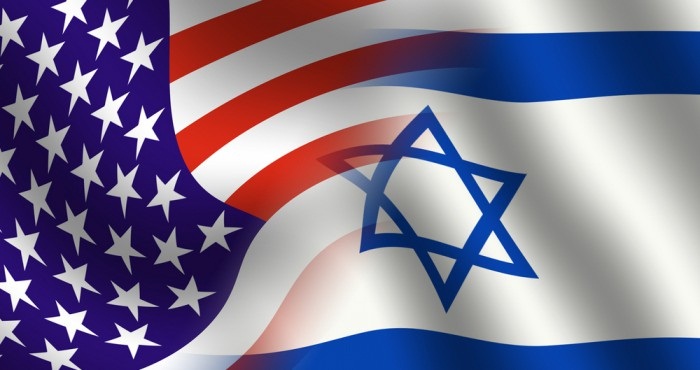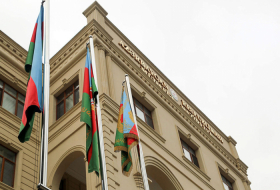Collision of interests and rising tensions in Armenia-diaspora relations

Some of the most distinctive differences are related with recognition of the so-called "Armenian genocide” and the "independence” of the Nagorno Karabakh, opening of borders, situation with democracy and human rights in Armenia. And as of 2013, strained relations have turned into confrontation. It is not incidental that members of the Armenian diaspora are the most active to expose to the mass media the faults in the domestic and foreign policy of the Sarkisyan’s regime and the criticism has only grown lately.
It is worthy of mentioning that prior to relocation of the Armenians to their present location, centuries ago Armenians mainly resided in the Middle East and various parts of Europe. There are three key centers for 6-7 million strong Armenian diaspora: Middle East, former Soviet space and Europe, and the Americas. Armenian diaspora settled in quite an extensive geographic space. Individual Armenian communities of various regions possess different culture and mindset. Armenian diaspora of the Americas, especially the U.S., stands out for the level of organization and financial resources. That is the very arm of the diaspora with most strained relations with the Armenian authorities.
Initial rifts in the diaspora-authorities relations appeared back in the late 1980s, during growing independence sentiments in Armenia SSR on the eve of the collapse of the Soviet Union. In joint statements some diaspora organizations at the time called upon the local authorities to refrain from exacerbating relations with the central government in Moscow and to abandon independence aspirations. In Armenia, such position of the diaspora organizations was denounced as treason.
However, diaspora organizations vigorously backed Armenia in the wake of the empire’s dissolution. Armenian diaspora that provides financial assistance and supports Armenia through lobbying seeks greater leverage over domestic policies of the country. For the past 20 years Armenian diaspora organizations have been trying to be represented in the higher echelons of Armenia’s government. Nevertheless, they have failed to be visible on the desirable level, be it during the tenures of Levon Ter-Petrosyan and Robert Kocharyan or under the President Serj Sarkisyan.
Biggest bone of contention in Armenia-diaspora relations is the issue of opening borders between Armenia and Turkey. It was long before the establishment of Armenia as a state that diaspora waged fierce struggle for the international recognition of the so-called "Armenian genocide”. Today, the issue remains to be a top priority for the diaspora. Therefore, diaspora protested against the signing of Zurich protocols between Armenia and Turkey on October the 10th, 2009.
Similar to diaspora, the Armenia’s authorities are defiant in pursing the "genocide” issue and in forwarding territorial claims against Turkey. However, taking into account economic dividends to be yielded by the opening of borders, Armenian side wishes to temporarily postpone those issues, accusing the diaspora of neglecting the interests of the country and the Armenian people. Diaspora argues that it is not the people of Armenia but the ruling circles, a handful of bureaucrats that stand to benefit from the opening of borders.
Issue of recognition of the separatist regime in the Nagorno Karabakh constitutes another conflict between the diaspora and authorities. Majority of diaspora organizations urge Armenia to recognize Nagorno Karabakh as a state. Meanwhile, Armenia explains its reluctance by its efforts not to derail the ongoing OSCE Minsk group brokered negotiations with Azerbaijan and to avoid turning the international community against itself on the issue.
Still, there are plenty of complicated legal aspects to the issue. On 1 December 1989, against the wishes of Azerbaijan and Azerbaijani population of the region, Armenia SSR adopted an illegitimate decree to annex Nagorno Karabakh Autonomous Region, an integral part of the Azerbaijan SSR. The very illegal action was stated among the founding principles of establishment of an Armenian state and was stipulated in the declaration of independence of Armenia, a component of Armenia’s constitution. Clearly, the objective of attacking Nagorno Karabakh and seven adjacent districts and waging a war against Azerbaijan was not just about supporting the separatists; it was about a desire to annex this region, to occupy it. Therefore, recognition of the Nagorno Karabakh contradicts not just the international law and Azerbaijan’s legislature but the very constitution of Armenia.
One of most frequently mentioned topics in the diaspora sponsored mass media is the resentment with the monopolization of the Armenia’s economy by the oligarchs within the government. Hurdles placed by the current regime obstruct the aspirations of wealthy Armenians from elsewhere to set up a business in Armenia. One way or another, citing lack of progress in the area of democracy and human rights throughout 20 years of existence of the Republic of Armenia, diaspora organizations of the Western hemisphere seek the participation of diaspora representatives in the governance.
Incumbent government of Sarkisyan has lost legitimacy in the eyes of both the major part of the diaspora and the majority of country’s population. Diaspora points at undemocratic regime of Sarkisyan, blaming it for massive migration and social-economic crisis in the country. Moreover, just like most of Armenians, diaspora organizations consider Raffi Hoffanesyan, diaspora Armenian, to be a legitimate winner of last presidential elections in the country. Particularly, the U.S. diaspora organizations view California native R. Hoffanesyan as a representative of their interests. Diaspora activists advocate for extensive diaspora support and taking to the streets in mass rallies for the sake of establishment of democracy in Armenia.
So far, most of the wishes of the diaspora with respect to the country remain unfulfilled. Armenia’s incumbent authorities appear defiant in continuing to govern the country in the old fashion. Presumably, Armenia-diaspora relations will continue to be strained and even deeper contradictions are likely to follow.















































